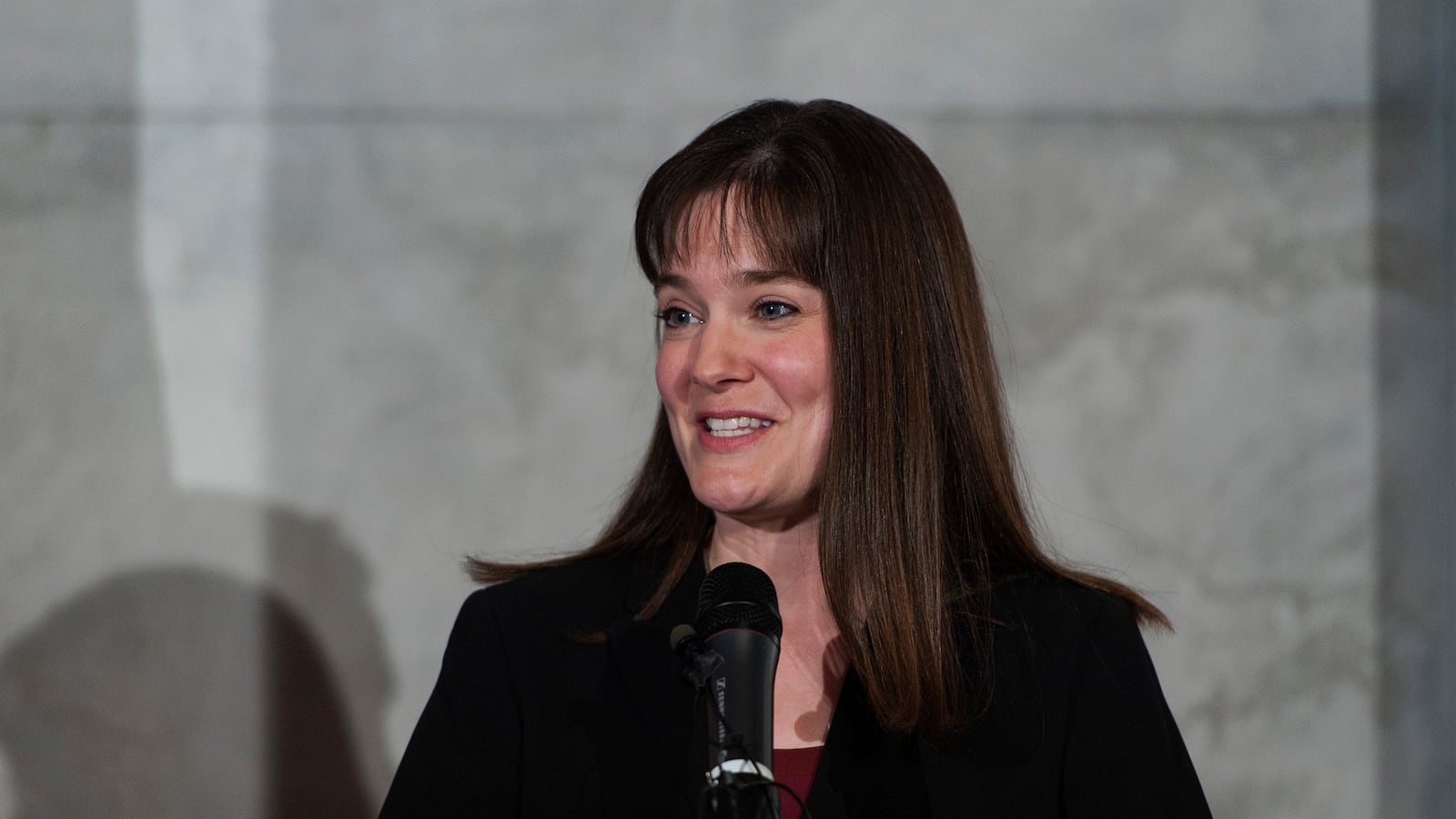After weeks of teasers, Tennessee on Tuesday released the first draft of its K-12 education plan with the potential to reshape the state’s 1,800 public schools.
The 286-page plan, issued in response to a sweeping new federal education law, includes detailed proposals to alter the way schools are evaluated and the role of the state’s school turnaround district in intervening in struggling schools. It also touches on teacher preparation, arts funding, school counselors, and a multitude of other factors involved in the day-to-day operation of public schools.
The State Department of Education will collect feedback until Jan. 31 on its proposal to comply with the Every Student Succeeds Act, known as ESSA, and plans to submit its final draft to U.S. Department of Education by April.
“The feedback you share with us during this window is critical,” Education Commissioner Candice McQueen wrote in a blog post. “You are helping to build the strategies and strengthen the momentum for the work ahead, and your input will make us better able to serve all of Tennessee’s 1 million students.”
Read our preview of Tennessee’s ESSA plan and our story about how the state-run Achievement School District may lose power under its proposals.
Education leaders who have been waiting for the complete plan, many of whom contributed to it, were generally positive about the proposal as they read through it on Tuesday, though some already see room for edits.
“The Tennessee Department of Education has taken a thoughtful, inclusive approach to writing the draft plan, engaging thousands of Tennesseans in the development process,” said a statement from the State Collaborative on Reforming Education, an advocacy group founded by former U.S. Senate Majority Leader Bill Frist.
SCORE leaders promised to be student-focused in scrutinizing the proposal. “Our review will pay particular attention to school accountability, school improvement, and delivering excellent and equitable outcomes for students of all backgrounds because of the impact these issues can have on student achievement,” the group’s statement said.
A major theme of the plan is how the state should determine school quality. The draft proposal incorporates a variety of factors, including student test scores, course offerings and growth in the academic performance of students.
“That’s something important, especially for schools serving populations that have struggled in the past,” said Maya Bugg, CEO of the Tennessee School Charter School Center. “Those schools are working toward proficiency, but they also need to celebrate growth.”
Bugg hopes the plan will lead to increased focus and support for historically disadvantaged groups, such as students of color and English learners, by making their test scores a significant part of schools’ final ratings.
Tennessee Education Association President Barbara Gray was cautiously optimistic but wants to review the plan with an eye toward reducing the role of testing. Right now, she said, standardized tests play an outsized role in the state’s schools.
She urged educators and other Tennesseans to offer feedback to the state by the Jan. 31 deadline. “It’s important for teachers to give input on this plan because, if we don’t, nothing will ever change,” she said.
The State Department of Education began collecting public feedback around ESSA in May, and convened working groups to help write the draft in June. In recent weeks, state officials have presented previews at town halls in Knoxville, Jackson, Memphis and Nashville. They plan to conduct two more in January, in Chattanooga and Bristol.
Gini Pupo-Walker is among advocates for Tennessee’s immigrant population who have contributed ideas to the plan’s authors about support for English learners. She said Tuesday that she’s been pleased with the process, although she sees room for further revision, especially around accountability for serving students of color.
“We feel our voices were heard in a lot of ways,” said Pupo-Walker, senior director of education policy for Conexión Américas and leader the Tennessee Educational Equity Coalition.

